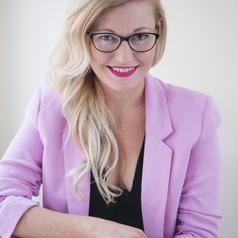
Sarah-Jane (SJ) Research Fellow, Sch
Sarah-Jane's research is focused on twentieth-century American poetry with a particular interest in the literary history of New England and the study and preservation of archival materials related to this period.
She is the Official Historian for the New England Poetry Club in Boston, MA and her research has been funded internationally by several universities. In 2019 she was a Research Fellow at the Houghton Library, Harvard. She has also been the recipient of an Everett Helm Visiting Fellowship at the Lilly Library, Indiana University and a Dissertation Grant from the Schlesinger Library for the History of Women in America, Harvard.
She has worked in both academic and professional roles in the tertiary sector including the English department at Macquarie University, Sydney and the Library division of Western Sydney University.
Less ![]()
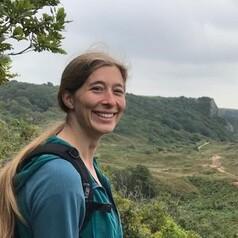
Sarah-Sophie Weil
PhD candidate, Swansea University
I am interested in large-scale biogeographic patterns and the underlying mechanisms and processes. Species' dispersal (natural dispersal, invasions and range shifts) is a particular favourite of mine, especially in the context of land-use and climate changes. It is one of the proccesses at the origin of biodiversity as it can lead to speciation, and it determines where we can find which species today. I completed a joint PhD programme between Swansea University (Wales, UK) and Université Grenoble Alpes (France), and have now moved to Germany for a postdoc position.
Less ![]()
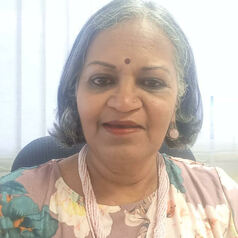
Sarala Krishnamurthy
Prof Sarala Krishnamurthy is a professor of literature and applied linguistics in the Department of Communication in the Faculty of Commerce, Human Sciences and Education. She was dean of the faculty for more than 11 years. Now, she teaches at the post graduate level and has supervised more than 20 Masters, 12 MPhils and 9 PhDs in postcolonial literature, feminist literature, English language teaching and stylistics.
She has published widely and presented papers at several international conferences all over the world. She has co-edited two major volumes - Writing Namibia: Literature in Transition and Coming of Age which present the best of critical writing on Namibian literature. She completed two major research projects in 2021. These were the P3ICL project, funded by the European Union, to protect, preserve and promote indigenous culture and languages, and Herero Genocide Survivor Narratives, funded by Basler Afrika, Bibliographien. The latter is path-breaking because it records interviews of genocide survivor families and presents heart-rending tales of trauma and resilience of the Otjiherero people of Namibia.
In 2020, she also published six books which are collections of folk tales and plays in the Oludhimba, !Kung and Sifwe languages of Namibia. Currently, she is working on a new book - Nama Genocide Survivor Narratives - along with colleagues in the department.
Less ![]()
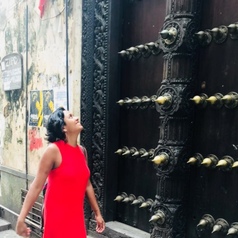
Sarita Pillay
Lecturer in the School of Geography, Archaeology and Environmental Studies, University of the Witwatersrand
Dr Sarita Pillay Gonzalez is a lecturer in Human Geography at the School of Geography, Archaeology and Environmental Studies (GAES) at Wits. Sarita was awarded her PhD through the School of Architecture & Planning (SoAP) at Wits in 2022, undertaking fieldwork in Johannesburg and Bangalore. Her research interests in real estate development and the multifarity of the state in the built environment were inspired by her time as a researcher, community organiser and popular educator in affordable housing campaigns in Cape Town from 2016 to 2018. Prior to this, as a Fulbright scholar, Sarita received her Masters in Urban & Regional Planning from the University of Minnesota focused on Spatial Justice & Political Economy.
Less ![]()
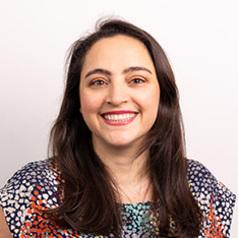
Sarvin Hassani
Senior Lecturer in International Business, Anglia Ruskin University
As senior lecturer in international business, I am interested in macroeconomics, economic innovation, economic growth and economic productivity.
I am also leading Centre for Student Success (CfSS) which focuses on student engagement and implement various intervention across the academic year to support students and increase the student's success rate. I am also active researcher in this area.
Less ![]()
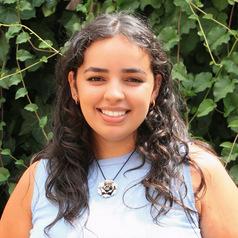
Sascha Samlal
PhD Candidate, The University of Melbourne
Sascha Tanuja Samlal is a PhD candidate at The University of Melbourne in Cultural Studies. Her research project titled, Shame and the Figure of the Fangirl: Reconfiguring Shame in Popular Music Fandom, commenced in 2023. Her research spans fandom studies, social media studies, critical femininity studies, and feminist and queer theory. She is an advocate for attending to questions of femininity and queer lived experiences in research.
Less ![]()
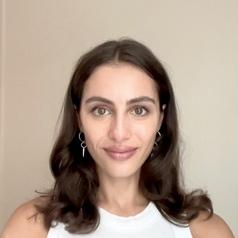
Sasha Moodie
Research Officer, Curtin University
I graduated from the Master of Public Health at the University of Melbourne in 2023. During my studies, I developed an interest in qualitative research methods and community-based approaches to public health responses and research. Since graduating, I have been working at the Melbourne School of Population and Global Health and the National Drug Research Institute at Curtin University in Indigenous health research. I also have experience working in sexual and reproductive healthcare and Victorian Government public health programs.
Less ![]()
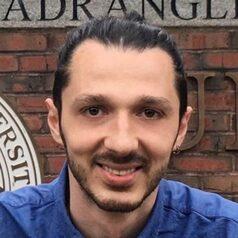
Sasha Volodarsky
Ph.D. Student in Political Science, Northeastern University
Sasha Volodarsky is a doctoral candidate in the Department of Political Science at Northeastern University, specializing in Comparative Politics and American Politics. He has a strong background and interest in voters’ and parties’ behavior and particularly in voters’ volatility. During Sasha’s MA studies he served as a Teaching Assistant at Sapir Academic College (Israel) and as a Research Assistant at Interdisciplinary Center Herzliya (Israel).
Sasha’s research interests lie at the intersection of comparative politics (arising from fascination with multi-party democracies) and American politics (which puts more emphasis on voters’ and parties’ behavior). In his studies, Sasha hope to continue research of switching behavior in multi-party democracies and the rise of populism.
Sasha grew up in Donetsk, Ukraine and moved to Israel at the age of 17. After completing his BA in Sociology, he served as a research officer at the Command and Staff College of the Israel Defense Forces, heading the research department.
After his army service Sasha started to work as a marketing researcher. After several years he became interested in socially oriented research. Therefore, Sasha switched to the field of applied research and worked at Myers-JDC-Brookdale Institute in Jerusalem, and later at the Cohen Center for Modern Jewish Studies at Brandeis University. In addition, he spent several years overseeing group counselor training in informal education projects. Sasha is fluent in Russian, Ukrainian, and Hebrew.
Less ![]()
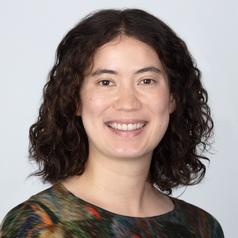
Sasha Wilmoth
Lecturer in Linguistics and Applied Linguistics, The University of Melbourne
Sasha Wilmoth is a Lecturer in Linguistics and Applied Linguistics at the University of Melbourne, working within the Research Unit for Indigenous Language. Her research focusses on the languages of Indigenous Australia. In particular, she works with Pitjantjatjara communities to document the structure of their language, how the language is being maintained and adapted by young people, and how to keep the language strong through bilingual education.
Less ![]()
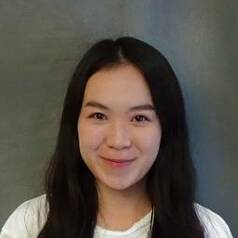
Sasimonthakan Tanarsuwongkul
Ph.D. Candidate in Biochemistry, University of South Carolina
I am currently working on finding the biomarker(s) of a vascular disease using proteomics and finding the receptor(s) of a group of plant defense signals using chemoproteomics, along with analyzing a modified virus using the liquid chromatography and mass spectrometry.
Less ![]()
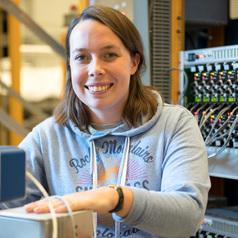
Saskia Charity
Postdoctoral Research Associate, Particle Physics, University of Liverpool
I am a senior Research Associate in the Particle Physics group at the University of Liverpool. My research is focused on Muon Physics. In particular, I work on resolving the tension between the experimental and theoretical determinations of the muon anomalous magnetic moment. I have been working on the Fermilab muon g-2 experiment since 2014. After gaining my PhD from the University of Liverpool, where I built hardware and developed reconstruction algorithms for the g-2 tracking detectors, I moved to Fermilab as a Research Associate in the muon department. During my time working on g-2 I have been involved with many different aspects of the operations and analysis of the experiment. In my current role as magnetic field Analysis Coordinator, I analyze data from multiple systems to make an ultra-precise measurement of the muon-weighted magnetic field, which is one of the two main quantities required to determine the value of the muon anomalous magnetic moment. In 2022, I joined the University of Liverpool once again, to continue my work on g-2 as well as other muon experiments.
Less ![]()
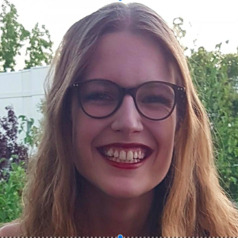
Saskia Roberts
PhD Candidate, School of History, Australian National University
Saskia is a PhD Candidate in History at the Australian National University. She researches Australian teenage girls, intimate knowledge and print culture between 1970 and 2010. She is also a member of the Lilith: A Feminist History Journal editorial collective.
Less ![]()
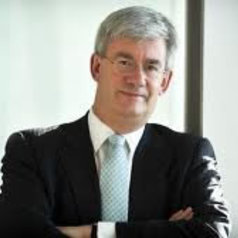
Saul Eslake
In 2016, Saul Eslake was appointed as the University of Tasmania's inaugural Vice-Chancellor’s Fellow. A focus of his efforts in the role will be the University’s Institute for the Study of Social Change, where he will provide advice and leadership on new research programs designed to analyse and address the social and economic challenges facing our local community and nation as a whole. His work also will centre upon the importance of education to Tasmania.
This is a part-time role; Saul is also an independent consulting economist.
Saul Eslake has worked as an economist in the Australian financial markets for 25 years, including 14 years as Chief Economist at the Australia & New Zealand Banking Group (ANZ).
After leaving ANZ in mid-2009, Saul was Director of the Productivity Growth program at the Grattan Institute, a non-aligned public policy 'think tank' affiliated with the University of Melbourne, and a part-time Advisor in PricewaterhouseCoopers' Economics & Policy practice.
From 2011 to 2015, Saul was Chief Economist at the Australian arm of Bank of America Merrill Lynch, before establishing a private consultancy in Tasmania.
Saul is a non-executive director of Hydro Tasmania (the Tasmanian state-owned electricity generator), and Chair of the Board of Ten Days on the Island (Tasmania's biennial multi-arts festival). He has previously been a member of the National Housing Supply Council and the Australian Statistics Advisory Committee; Chair of the Tasmanian Arts Advisory Board; and a non-executive director of the Australian Business Arts Foundation. He was also a member of the Howard Government's Foreign Affairs and Trade Policy Advisory Councils, and of the Rudd Government's Long-Term Tourism Strategy Steering Committee.
Less ![]()
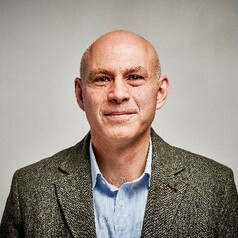
Saul Lehrfreund
Visiting Professor, School of Law, University of Reading
Saul Lehrfreund is the co-founder and Co-Executive Director of The Death Penalty Project, an international human rights organisation based at Simons Muirhead & Burton solicitors in London. Saul specialises in constitutional and international human rights law and has represented prisoners under sentence of death before the domestic courts in the Commonwealth and international tribunals since the organization's inception in 1992. He has assisted lawyers in many countries (including Uganda, Nigeria, Malawi, Ghana, India and Malaysia) in constitutional cases concerning the death penalty and has participated in expert delegations to Japan, Taiwan, China and India.
In November 2000, Saul was awarded an MBE for services to international human rights law and in July 2009, he received an Honorary Degree of Doctor of Laws from the University of Reading.
He is a founder member of UK Foreign & Commonwealth Office Pro Bono Panel representing British Nationals facing the death penalty. Saul has published and lectured extensively on capital punishment and human rights to a wide range of audiences including the United Nations and the Council of Europe.
Less ![]()
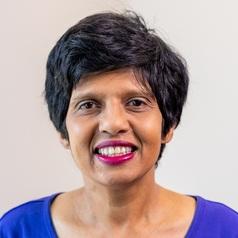
Savitri Taylor
Associate Professor, Law School, La Trobe University
Savitri Taylor's research over the past 30 years has focused on refugee law and asylum policy at the national, regional and international level.
Less ![]()
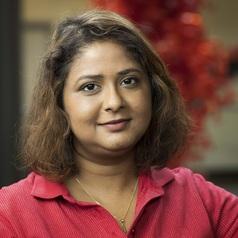
Sayonnha Mandal
Lecturer in Interdisciplinary Informatics, University of Nebraska Omaha
Dr. Sayonnha Mandal is a Lecturer of Cybersecurity in the College of Information Science and Technology at the University of Nebraska at Omaha (UNO). She received a Masters in Telecommunication Engineering from the University of Oklahoma and a Masters in Cybersecurity from UNO. Dr. Mandal earned her doctorate in Information Security from UNO, with a focus on software security requirements modeling and analysis. Her research interests include cybersecurity curriculum development, information security policy and governance and quantum cryptographic implementations. Moreover, she has experience in teaching a variety of cybersecurity courses at both the graduate and undergraduate levels including Digital forensics, Foundations of Cybersecurity, Intro to Cybersecurity, Cryptography, Security Policy and Awareness and Computer and Network Security.
Less ![]()
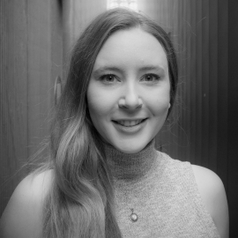
Scarlett Howard
Lecturer, Monash University
Dr Scarlett Howard is a lecturer and research group leader in the School of Biological Sciences at Monash University. Her research spans cognition, behaviour, pollination, ecology, zoology, neurobiology, environmental change, and bio-inspired solutions. She predominantly works with bees and other insects to explore the cognitive abilities of miniature insect brains. Her work on honeybee cognition and pollination spans between collaborations across the world.
Scarlett has previously worked at the Centre for Integrative Ecology (CIE), School of Life and Environmental Sciences at Deakin University, the Bio-Inspired Digital Sensing (BIDS) Lab, School of Media and Communication at RMIT University, the School of BioSciences at the University of Melbourne, the Experience-Dependent Plasticity in Insects (EXPLAIN) Team in the Research Center on Animal Cognition (CRCA) with CNRS - Université Toulouse III - Paul Sabatier (Toulouse, France).
Less ![]()
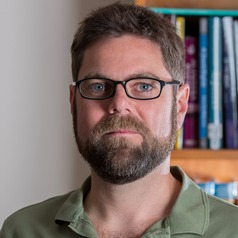
Scott Bridges
Scott is a PhD candidate at the University of Canberra where he also teaches communications and journalism.
Less ![]()
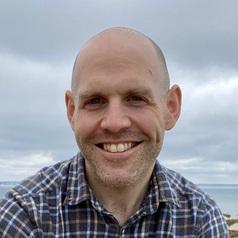
Scott Cairney
Associate Professor of Psychology, University of York
I lead the Emotion Processing and Offline Consolidation (EPOC) Lab at the University of York. Our research addresses the mechanisms through which sleep disturbances give rise to mental health problems, with a focus on neurobiological perspectives. We use a range of methods to do this, including behavioural studies, sleep electroencephalography (EEG) and functional magnetic resonance imaging (fMRI). Our findings have helped us to better understand what goes wrong in the brains of people who are not sleeping well, and how we can target these impairments to improve the prospects of people at risk of psychiatric disorders.
Less ![]()
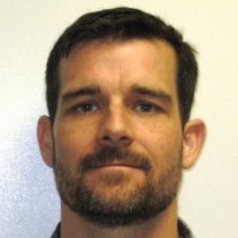
Scott Campbell
Constance F. and Arnold C. Pohs Professor of Telecommunication, University of Michigan
My research examines the social implications of new media, with an emphasis on mobile telephony. Current projects investigate how mobile communication patterns are linked to both the private and public spheres of social life, such as social networking and civic engagement. Several of these projects use a comparative approach to situate the role of mobile communication technology in the larger media landscape and across different societies.
Less ![]()
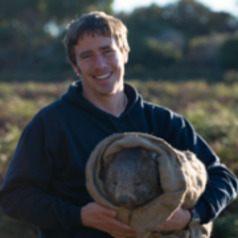
Scott Carver
Associate Professor, Wildlife Ecology, University of Tasmania
Scott joined the School of Biological Sciences at the University of Tasmania (UTAS) in 2012. He continues his research into disease transmission in puma, bobcats and domestic cats in North America, focussing on Feline Immunodeficiency Virus (an analogue for HIV in humans).
He has reengaged in mosquito-borne disease ecology in Australia, picking up where his PhD finished, with specific emphasis to understand the complex ecology and epidemiology of Ross River virus, particularly the role of marsupial hosts in human epidemic patterns. He has also established new research directions.
A major focus of his lab is studying sarcoptic mange, which is the most threatening disease of wombats in Australia, and infects >100 species of mammal globally. He collaborates and co-supervises students studying Tasmanian Devil Facial Tumour Disease. He also works closely with colleagues studying the epidemiology Chlamydial infections among agricultural animals and koala, and vaccine development.
Less ![]()
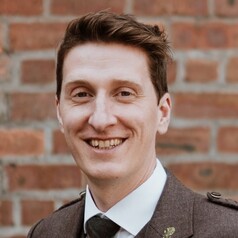
Scott Chiesa
Senior Research Fellow and Alzheimer's Research UK David Carr Fellow, UCL
I am a senior research fellow in the MRC Unit for Lifelong Health and Ageing at UCL. I hold a BSc(Hons) from the University of Glasgow, MSc from King's College London, and a PhD from Brunel University London. I am currently funded as an Alzheimer's Research UK David Carr Fellow researching early-life risk factors which may underlie the development of both cardiovascular disease and dementia.
Less ![]()
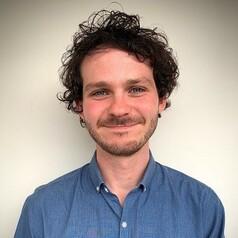
Scott Claessens
Postdoctoral Research Fellow, University of Auckland
I am a Postdoctoral Research Fellow in Psychology at the University of Auckland. I study cooperation and prosociality in humans, and how these behaviours relate to other aspects of our social lives, including politics and religion.
Less ![]()

Scott Davies
Professor, Ontario Institute for Studies in Education, University of Toronto
My research has several branches. One examines trajectories of student achievement over several years. With various institutional partners I am compiling data sets that track students from their early years into post secondary levels, and to assess the impact of various interventions in reducing educational inequality. Another branch examines educational organizations, paying attention to the variety of school forms that are emerging at all levels of schooling, including various types of private schools and tutoring businesses, and various public schools of choice. In a third branch, I am attempting to contribute to sociological theories of education, variously interpreting how schooling and society have become more deeply ‘interpenetrated’ over time, charting different forms of cultural capital, and attempting to apply Interaction Ritual Theory to schooling.
Less ![]()
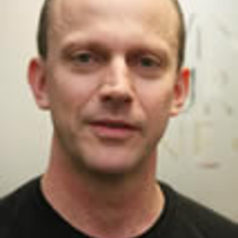
Scott Ewing
Scott Ewing is a Senior Research Fellow at the Swinburne Institute for Social Research and at the ARC Centre of Excellence in Creative Industries and Innovation. He has fifteen years experience as a social researcher, both at Swinburne and in the private sector. He is currently managing the Australian component of the World Internet Project, a global survey of internet use and non-use.
Less ![]()
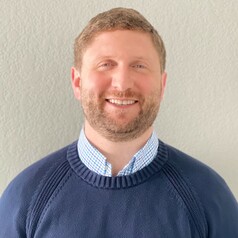
Scott Hagan
Assistant Professor of Medicine, School of Medicine, University of Washington
Dr. Scott Hagan is an Assistant Professor of Medicine in the Department of Medicine at the University of Washington. He is a primary care physician with board certifications in Internal Medicine and Obesity Medicine. His research interests includes patient-centered obesity care, evidence-based medicine, and primary care quality improvement.
Less ![]()
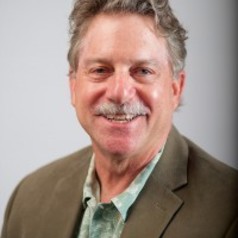
Scott L Montgomery
Scott L. Montgomery is a university lecturer and author. His research and publications include areas in both the humanities and sciences, in particular history of science, intellectual history, language studies, and energy resources, technology, and security. He is the author, most recently, of Does Science Need a Global Language? (2013) and The Powers That Be: Global Energy for the Twenty-First Century and Beyond (2010). Forthcoming in 2015 are two works: Shape of the New: Four Ideas that Built the Modern World (with Daniel Chirot) and also A History of Science in World Cultures (with Alok Kumar).
Less ![]()
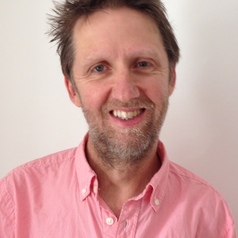
Scott Lucas
Scott Lucas became Professor of International Politics in 2014, having been on the staff of the University of Birmingham since 1989 and a Professor of American Studies since 1997.
He began his career as a specialist in US and British foreign policy, but his research interests now also cover current international affairs – especially North Africa, the Middle East, and Iran – New Media, and Intelligence Services.
A professional journalist since 1979, Professor Lucas is the founder and editor of EA WorldView, a leading website in daily news and analysis of Iran, Turkey, Syria, and the wider Middle East, as well as US foreign policy.
Less ![]()
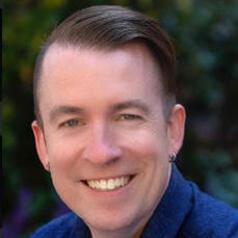
Scott Malia
Associate Professor of Theatre, College of the Holy Cross
Scott Malia is an Associate Professor of Theatre and Chair of the Theatre & Dance Department at College of the Holy Cross, where he teaches courses on theatre, film and television, with an emphasis on LGBTQ+ identities and comedy.
His directorial credits include "She Kills Monsters," "The Curious Incident of the Dog in the Night-Time," "Middletown" and "Cloud 9." His plays "The Interview," "A Few Adjustments" and "Buffering" were featured in the Boston Theatre Marathon, and he has translated Carlo Goldoni’s "The Servant of Two Masters" into metered verse.
His writing has been featured in Theatre Journal and New England Theatre Journal, and his book, "Giorgio Strehler Directs Carlo Goldoni," was published by Lexington Press in 2013.
Less ![]()
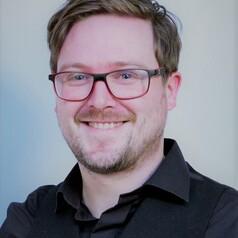
Scott McGrane
Senior Lecturer in Environmental Change, Department of Economics, University of Strathclyde
I am a University of Strathclyde Chancellor's Fellow (Society and Policy) since May 2019, having originally joined the Department of Economics (Fraser of Allander Institute) at the University of Strathclyde in September 2017, working on a collaborative project alongside the Department of Physics and the Stanford Photonics Research Center.
My backrgound is in environmental science, though I pride myself in being a truly interdisciplinary researcher. My qualifications include an MA(Hons) in Geography and Environmental Science, and a Master of Research (MRes) in Civil Engineering, both from the University of Dundee. I completed my PhD at the University of Aberdeen in 2013 in catchment hydrology, undertaking research that explored the impacts of environmental perturbations on natural river dynamics in Scottish uplands.
My research interests have continued to address the impacts of environmental change on large river systems. Between 2013 and 2016 I worked as a research fellow in the Department of Civil and Environmental Engineering at the University of Surrey, working on a NERC funded project that sought to assess and model the impacts of urbanisation and climate change on water quality in the Thames Basin. In 2016, I moved to the School of Mathematics & Statistics at the University of Glasgow, working on an EPSRC project that sought to determine the interlinkages and feedbacks that exist between water, energy and food systems in the UK.
I am the Honorary Treasurer (and executive committee member) for the British Hydrological Society. I also serve as an expert reviewer for the Intergovernmental Panel on Climate Change (IPCC) for the upcoming Sixth Assessment Report, and I am part of the Position Statement authorship team for the American Geophysical Union, where I was recently involved in the determination of a climate change position statement for 2019.
My research investigates the role natural resources play in economic systems, and identifying the impacts of environmental change on economic sectors at a regional, national and international scale. Through my involvement with the Global Environmental Measurement and Monitoring (GEMM) Network at Strathclyde, I seek to explore how advances in earth observational technologies can better inform us on the likely impacts of climate change at a sub-national level, helping to drive the development of relative climate and environmental policies.
I am open to supporting PhD students that are interested in the role of the natural environment in economic systems, and undertaking transdisciplinary approaches to understanding the likely impacts of environmental change on human-environment systems (including economic impacts, health impacts, environmental system impacts and natural hazards).
Less ![]()
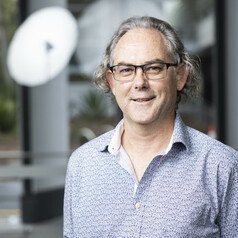
Scott Mooney
Associate professor, UNSW Sydney
A/Prof Scott Mooney is a geographer and palaeoecologist in the Earth and Sustainability Science Research Centre (and the School of Biological, Earth and Environmental Sciences) at the University of New South Wales in Sydney. He has published more than 70 peer-reviewed scientific papers covering his interests in past climate change, human impact and palaeoenvironmental proxies (in particular, using charcoal to consider fire over hundreds to tens of thousands of years).
Less ![]()
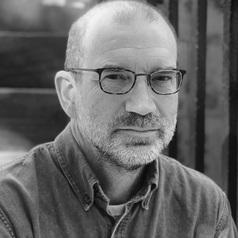
Scott Peeples
In 26 years at the College of Charleston, Scott Peeples has taught a wide array of courses, with topics ranging from Gothicism to 19th-century American poetry to Bob Dylan. He has published extensively on Edgar Allan Poe and other 19th-century writers, most recently as author of The Man of the Crowd: Edgar Allan Poe and the City and as co-editor of The Oxford Handbook of Edgar Allan Poe. His essays have appeared in a wide range of academic and popular publications, including J19, Southern Cultures, Arizona Quarterly, Salon, and The Millions.
Dr. Peeples previously served as Chair of the English Department from 2012 to 2017. He is a past president of the Poe Studies Association and the Southeastern American Studies Association.
Less ![]()
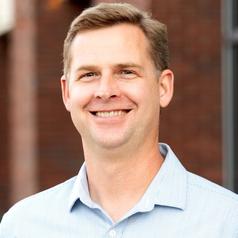
Scott Phillips
Professor of Materials Science and Engineering, Boise State University
Scott Phillips is a full Professor in the Micron School of Materials Science & Engineering at Boise State University. He earned his Ph.D. from Paul A. Bartlett at UC Berkeley in 2004 and trained as a postdoctoral fellow in George Whitesides’ group (Harvard). He started his independent career at Penn State in 2008. His research interests include developing sustainable plastics, designing signal amplification reagents, and developing new classes of smart materials. Dr. Phillips’ awards include the NSF CAREER award, DARPA Young Faculty Award, Beckman Foundation Young Investigator Award, Eli Lilly and Company Young Investigator Award, the Arthur F. Findeis Award, and he held fellowships from the Alfred P. Sloan Research Foundation and the Camille & Henry Dreyfus Foundation.
Less ![]()
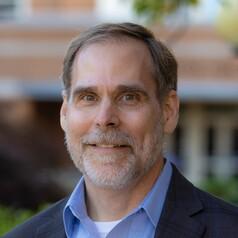
Scott Schang
Director of Environmental Law and Policy Clinic; Professor of Practice, Wake Forest University
Scott Schang is an expert on environmental law and governance. He is a Professor of Practice at Wake Forest where he directs the School's Environmental Law and Policy Clinic. He is also senior advisor on corporate engagement at Landesa, an international land rights NGO, where he advises on Landesa's work on responsible investment in land. He has extensive experience working with corporations, multilateral investment banks, international development agencies, international and local civil society partners, and community members in designing and implementing socially responsible practices and in designing and assessing the efficacy of environmental legal systems. He is past Acting President and Executive Vice President at the Environmental Law Institute, former Editor of the Environmental Law Reporter, and was in private practice with Cleary Gottlieb, and Latham & Watkins.
Less ![]()
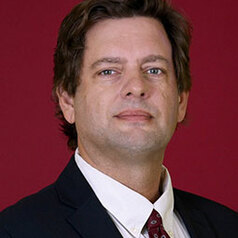
Scott Smith
Associate Professor of Hospitality and Tourism Management, University of South Carolina
Scott Smith was born and raised in Orlando, Florida, and witnessed firsthand Orlando's growth from a small, relatively unknown town into the tourism giant that it is today. When Smith turned 16, he began his hospitality management career at Walt Disney World, where he continued to work throughout high school and college. After graduation from the University of Central Florida, he began his professional career with Marriott Hotels and held various positions in their hotel and resort division throughout the United States. Prior to his academic career, Smith also worked for Sheraton Hotels, Rosen Hotels, Walt Disney World, and Hilton Hotels in various management positions before returning to graduate school and completing his studies at the University of Central Florida's Rosen College of Hospitality Management. Smith currently holds a position with the University of South Carolina’s College of Hospitality, Retail and Sports Management as an assistant professor. Smith’s primary areas of research are pricing and revenue management in the hospitality industry. He also provides consulting to the hotel, resort and theme park industries.
Less ![]()
- Market Data





















